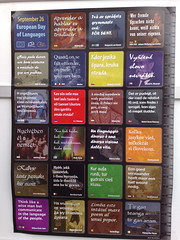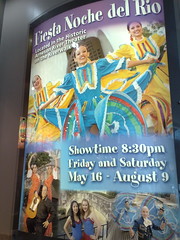Aún cuando estoy a favor de la diversidad lingüística (mascullando ocho idiomas no podría ser de otra manera), estoy de acuerdo con lo que hace algún tiempo posteó Martín Varsavsky en cuanto es muy difícil estar al tanto de lo que pasa en el mundo sin saber manejarse en inglés.
Me explico: alguna vez una persona que conozco me hizo burla cuando dije que tenía días sin hablar español y que en la oficina muy pocos lo hablaban, pero la verdad es que, con todo y que somos alrededor de 400 millones de hispanoparlantes, es muy poco probable que lo hables si no lo aprendiste de pequeño. Ahondando en el tema, nos damos cuenta que la mayoría de los nuevos conocimientos generados en la mayoría de las ciencias y en buena parte de las artes se diseminan en tal idioma, que es el que tiene mayor audiencia.
Si a eso añadimos que una importante sección del entretenimiento que consumimos también tiene sus orígenes en culturas de habla inglesa, significa que al esperar traducciones al español nos encontramos con una situación similar a tratar de ver las cosas con anteojos de cristal esmerilado. Vaya, que incluso tenemos problemas para saber porqué actores de origen hispanoparlante han tenido tanto éxito en el mundo angloparlante si no podemos ser testigos de las razones.
No quiero que se malinterprete, no abogo por el abandono de nuestras raíces y de nuestra lengua (al contrario, la sigo conservando en el entorno familiar y no tengo la menor intención de dejarla), mas no puedo quedarme con los brazos cruzados cuando soy testigo de lo que nos estamos perdiendo por no "entrarle al quite". El inglés es el latín de nuestra época aunque no nos guste. "De tripas, corazón".


